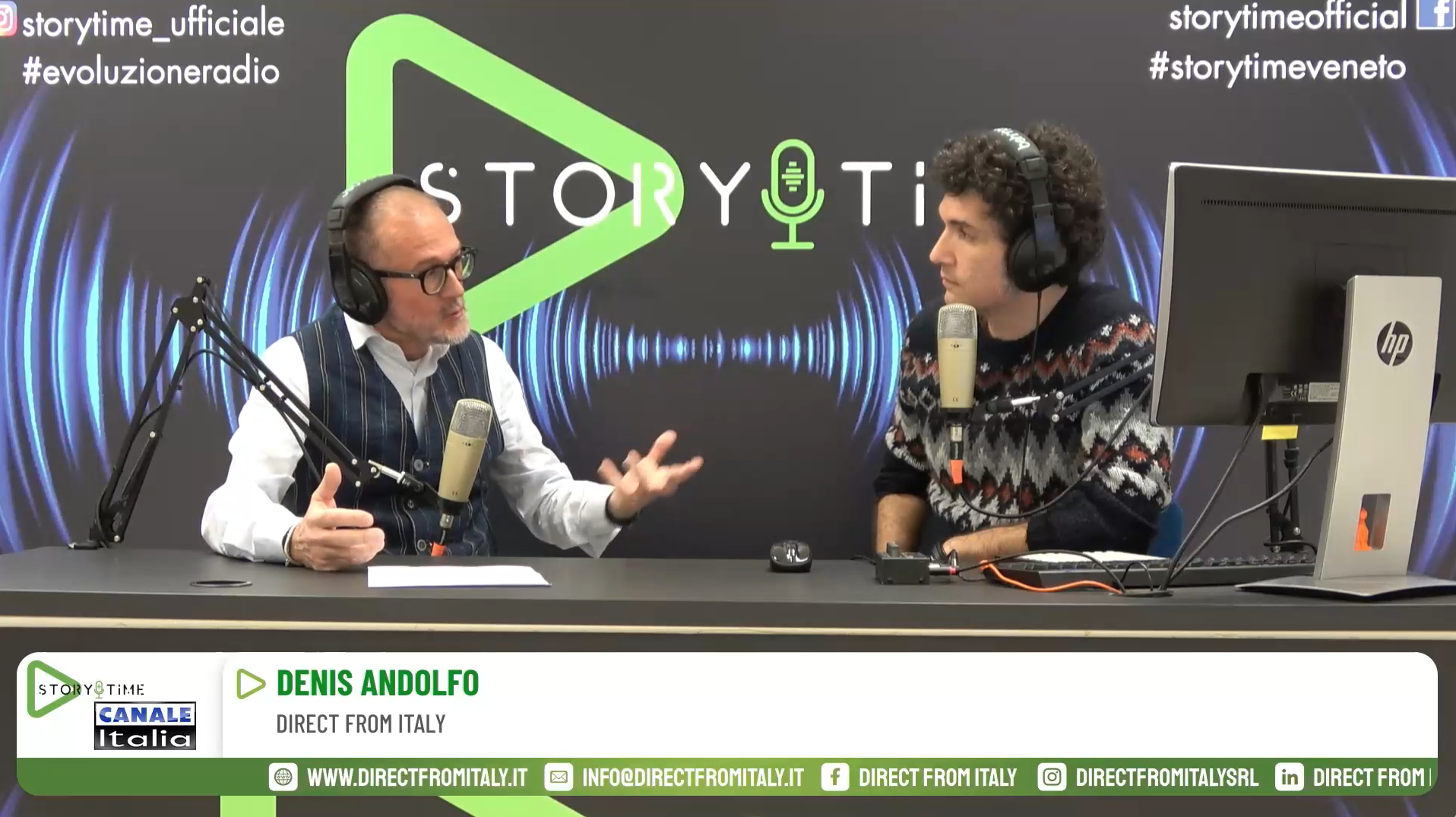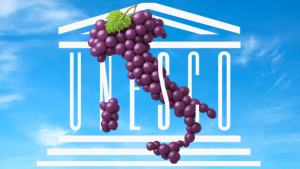Canale Italia interviews Denis Andolfo, Co-founder of Direct from Italy
Marco Ferrara and Denis Andolfo discuss the “Direct From Italy” project in the Wine Tech sector. The project was launched in 2019 to support wine producers, particularly in the hospitality industry, during the Covid period, enabling them to sell online. Denis explains that numerous challenges have arisen over the years, such as the introduction of the OSS regulation for intra-community transactions, complex customs regulations, and the more recent DAC7.
Direct From Italy has developed software to simplify the direct sale of alcoholic products by connecting producers with customs and logistics. The system allows consumers to order directly from the producer’s e-commerce platform or point of sale, without any intermediaries in the sales process.
Let’s now take a closer look at the key points discussed in the interview:
- What is Direct From Italy and what does this project consist of?
- What other challenges have you had to face?
- For those of us unfamiliar with the industry, the idea that a producer can freely sell abroad seems simple. But is it really that easy for an alcohol producer?
- Do you often encounter alcohol producers who are unaware of all these bureaucratic procedures and give up on selling abroad due to its extreme complexity?
- How exactly did you solve this problem for wineries and other alcohol producers? Distilleries and breweries come to mind.

1. What is Direct From Italy and what does this project consist of?
“Our story began in mid-2019, before Covid. My business partner and I founded the company with our own savings to meet the needs of the wine industry, particularly linked to the growth of hospitality, and then Covid happened…
Covid, of course, stopped tourists from visiting wine producers, and in this context, we helped wineries pro bono by setting up a kind of platform that allowed them to continue selling to their customers, who could no longer travel...
But then in July 2021, the OSS regulations came into effect regarding the VAT issue, on distance sales between European Community countries, and so we had to rewrite the software from scratch to comply with this new regulation as well. In 2022 we finally came out with our new software, the DFI Excise Plug-in, capable of meeting all regulatory and customs requirements for D2C distance sales to foreign countries.”
2. What other challenges have you had to face?
“The fact is that we are still in a sector where technology is not yet fully utilized, and as a result, the hospitality industry suffers.
Back then, before entering the software world with Direct From Italy, I was an Export Manager for a number of companies, and while traveling, especially in the United States, including Napa Valley, I saw how tourism is the primary source of revenue for wineries in the U.S.
According to our data, in the U.S. there are 4 million visitors, and 70% of sales are direct-to-consumer. Essentially, these wineries greatly benefit from the D2C market, generating around €2 billion in revenue from 70% of these 4 million visitors. In contrast, in Italy, with 15 million visitors, we only achieve 10% of that and generate a revenue of €2.7 billion.
There is a great untapped potential, and so our mission is to provide wineries, distilleries, and breweries with this new opportunity to capitalize on the revenue generated from tourism.”
3. For those of us unfamiliar with the industry, the idea that a producer can freely sell abroad seems simple. But is it really that easy for an alcohol producer?
“Shipping alcohol abroad to private individuals is more or less equivalent to shipping a bomb.
So, it’s very dangerous if the regulations aren’t followed, especially considering that each customs authority has specific rules. Excise taxes, duties, and a complex bureaucratic procedure must be handled. This is particularly true in the European Union, where there is free movement of goods and people, but not for alcohol. Here, the regulations must be followed very precisely because the seller—the winery, distillery, or brewery—is responsible. Therefore, extreme caution is required.”
4. Do you often encounter alcohol producers who are unaware of all these bureaucratic procedures and give up on selling abroad due to its extreme complexity?
“Of course, we deal with wineries, distilleries, and breweries every day, and we often find, in a positive sense, a significant lack of knowledge about the bureaucratic requirements that must be followed to legally sell abroad.
Some ignore it innocently, while others purposely disregard it and ship in a “incorrect way”.
Until 2021, it was still possible to do that, but with the introduction of the OSS regulation, as I mentioned earlier, you need to be very careful because VAT on alcohol must be paid in the destination country, quite simply.
To make it clear, let me give an example: when you buy something from Amazon, even from a foreign Amazon site, you still pay Italian VAT, right?
On this topic, starting from February 29, 2024, there will be the first exchange of VAT data between different European Tax Agencies, reported by companies and payment institutions for distance sales. The goal is to combat VAT tax evasion, ensuring that all these transactions are carried out correctly, with VAT paid in the destination country. But as I mentioned earlier, there is another important issue: VAT must also be paid on excise duties. So, if the correct VAT is not paid, there are two problems:
The first problem precisely you have with the IRS, and the second, spillover, also with the Customs and Monopolies Agency if you haven’t paid excise taxes.”
5. Specifically, how have you solved this problem for wineries and other alcohol producers? Distilleries and breweries come to mind…
“For all three types of alcohol producers, we’ve made it simple. But not just for them, also for the consumer, because if the process is made difficult by the producer, the consumer won’t buy either.
We developed an application that integrates into the winery’s e-commerce platform, making them independent. It’s not our platform, but it integrates seamlessly into their proprietary e-commerce system.
If they don’t have an e-commerce platform, they can still sell from their point of sale.
Think about how many wineries offer tastings, a foreign tourist arrives, and the producer only sells them 2 bottles. There’s no data collection and no possibility to ship what the customer wants abroad. This way, the concept of customer loyalty and repeat purchases is lost.
But what if the producer had the ability to sell the tourist exactly what they wanted and have it delivered directly to their home? Then, they could reconnect with the customer later through online channels, email, or phone once the visit is over. This would open the door to future purchases and a lasting relationship.
We developed two software solutions to address this problem: one for e-commerce, the DFI Excise Plug-in, and one for point-of-sale at the winery, called Direct from Winery.
In this way, the producer doesn’t necessarily need to build an e-commerce platform. By doing so, we connect the winery, distillery, or brewery with the relevant customs authorities and our integrated logistics system.
When the customer wants to place an order, he enters the site or is there at the winery, one types in the wine he wants to have taken home, the software takes care of the real-time calculation of all fulfillment with calculation of excise, duties and VAT, and at the shopping cart the amount is valued, which the customer pays online or on site at the winery with POS or cash.
Through our software, we give producers the ability to establish a direct relationship with consumers abroad, without any intermediaries. The payment is received directly by the producer, and the consumer receives the wine, spirit, or beer at their home without having to do anything else or face any unexpected costs, aside from what was agreed upon at the time of purchase.
The wine is taken from the winery and delivered directly to the consumer’s home. So, there’s another important aspect to consider: the wine arrives fresh. Imagine a fine wine like Barolo or Amarone, which is crafted in the winery and must remain there until it’s transported as needed. Then, think about the issue of importers; with direct sales, you can build a new market and then attend trade fairs and tell your distributors that a particular product is in demand from consumers in a specific country or city with a reach that knows no boundaries. It becomes a synergistic effort, complementing what you want to achieve through traditional channels .”
Want to know more? Write to us at: info@directfromitaly.it




